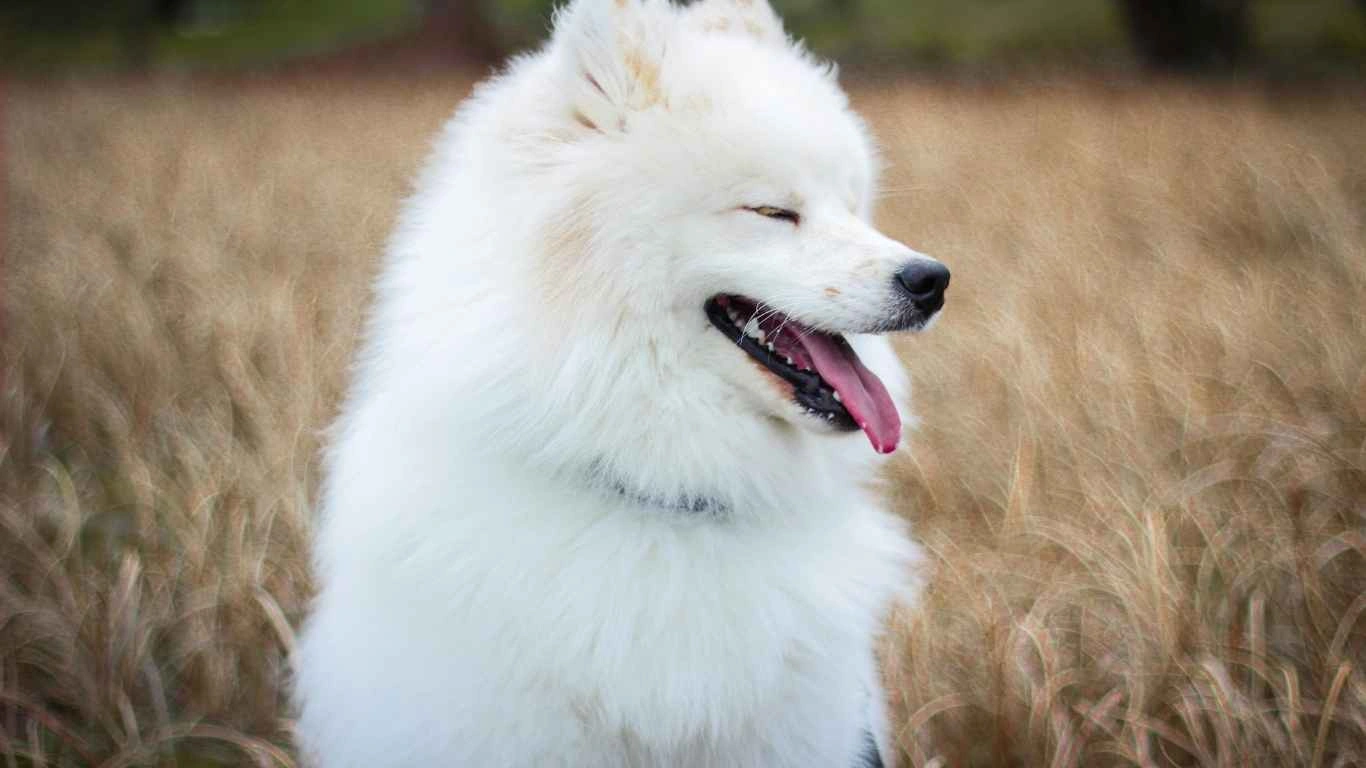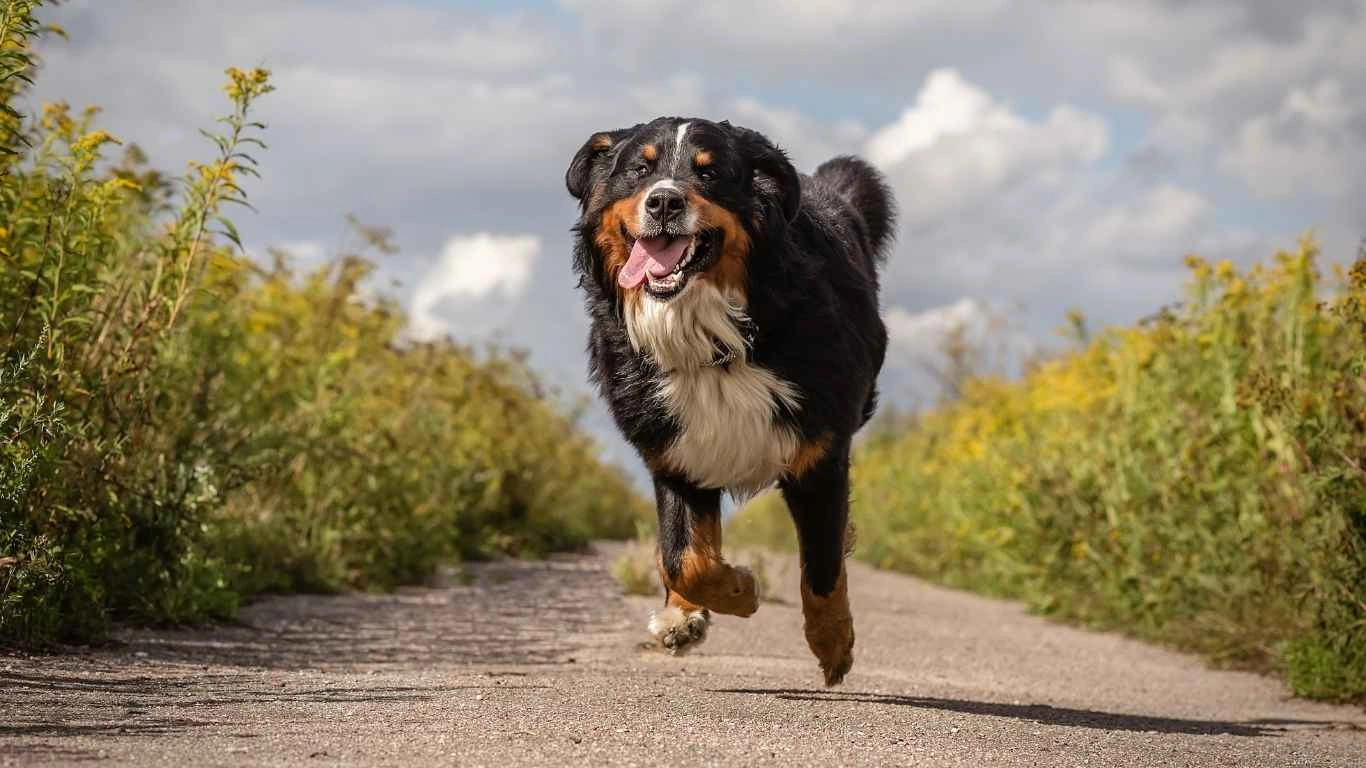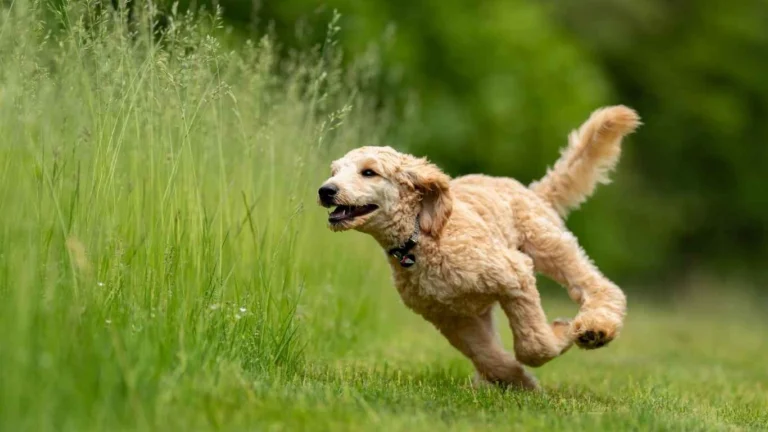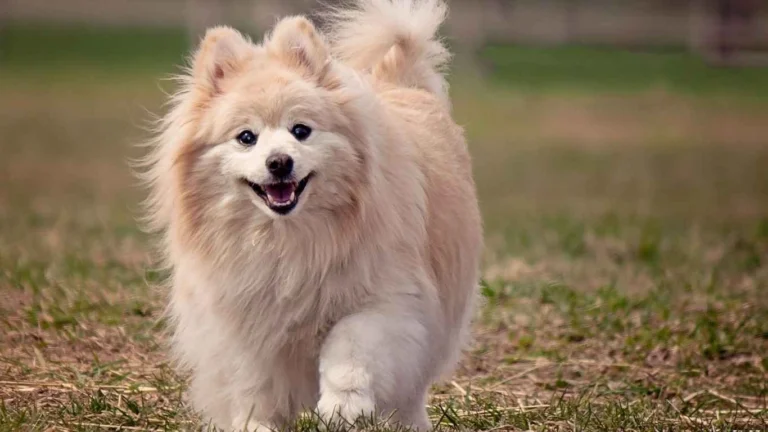Best Diet for Senior Dogs with Cognitive Decline – Top Foods & Tips
As a long-time Animal Care Specialist working in pet clinics and shelters, I’ve seen many dogs face the challenges of aging. It’s always tough when a senior dog starts showing signs of cognitive decline, but there’s a lot we can do to help them. One of the most important things is making sure they get the right diet. It can be overwhelming knowing where to start, but understanding the best diet for senior dogs with cognitive decline is key to improving their quality of life. Let’s dive into how nutrition plays a significant role in managing cognitive decline in senior dogs, along with my personal experiences that may help guide you in the right direction.
The Importance of Nutrition in Cognitive Health

When it comes to senior dogs, the food they consume isn’t just about keeping them full; it’s about fueling their bodies in a way that supports brain health. Dogs, like humans, go through changes as they age, and the brain can show signs of wear and tear. Cognitive dysfunction syndrome (CDS), similar to Alzheimer’s in humans, can affect older dogs. Symptoms can range from disorientation and confusion to changes in behavior like excessive barking or difficulty with tasks they once mastered.
As a pet owner, you may notice your dog becoming more forgetful or confused. This is where the right diet can make a difference. A nutrient-rich diet filled with antioxidants, omega-3 fatty acids, and other essential vitamins can help support cognitive function and slow down the progression of cognitive decline in senior dogs.
Understanding the Role of Antioxidants in Senior Dogs’ Diets

One of the most significant aspects of the best diet for senior dogs with cognitive decline is the inclusion of antioxidants. Antioxidants, like vitamins C and E, help fight oxidative stress. Just as we humans can feel sluggish or foggy after long-term exposure to stress, so can dogs. Oxidative stress can damage the cells in the brain, leading to a decline in cognitive function. By feeding your dog foods rich in antioxidants, you can help counteract some of these harmful effects.
In my experience, I’ve seen the difference antioxidants can make in dogs with cognitive decline. One of the best sources of antioxidants for senior dogs is fruits and vegetables. Ingredients like blueberries, spinach, and carrots can be incorporated into your dog’s meals to offer these beneficial compounds. Not only do these foods help with cognitive health, but they also provide a range of other health benefits like supporting their immune system and promoting healthy skin.
Omega-3 Fatty Acids: A Key Component of Brain Health

Omega-3 fatty acids are another crucial nutrient when it comes to managing cognitive decline in older dogs. These essential fatty acids have anti-inflammatory properties and play a significant role in maintaining brain health. Dogs with cognitive dysfunction often have a reduction in the levels of omega-3 fatty acids in their brain, which can worsen symptoms of cognitive decline.
One thing I always tell dog owners is to look for pet food that includes DHA (docosahexaenoic acid) and EPA (eicosapentaenoic acid), two types of omega-3 fatty acids that are particularly beneficial for brain function. Sources of DHA and EPA include fish oils, especially those from salmon and sardines, and sometimes even algae-based supplements. Incorporating omega-3s into your dog’s diet can help maintain brain cell function and slow cognitive deterioration.
What to Look for in the Best Diet for Senior Dogs with Cognitive Decline
When shopping for food for your senior dog, it’s essential to choose high-quality products that are specifically designed to meet the nutritional needs of older dogs. Here are a few things to look for:
- High-quality protein: As dogs age, they need more protein to maintain muscle mass, but it should be lean, high-quality protein to support overall health without overloading their system.
- Fiber: Fiber is important for digestive health, especially as senior dogs may have a slower metabolism. Look for foods that contain appropriate levels of fiber to keep their digestive systems moving smoothly.
- Fortified with vitamins and minerals: A senior dog’s body requires extra vitamins like B12, and minerals such as calcium and phosphorus, to keep bones strong and support immune function.
- Low in unhealthy fats: Senior dogs don’t need as many calories, so avoid foods with excessive fat that can contribute to weight gain or digestive issues.
Choosing the right ingredients in your senior dog’s food can make all the difference in helping them manage cognitive decline. I’ve seen firsthand how these specific nutrients can help older dogs live a fuller, healthier life despite the challenges of aging.
Should You Consider Supplements?

While a high-quality diet is crucial, some pet owners may choose to supplement their dog’s diet with additional nutrients. Supplements can help target specific needs that may not be met by food alone. Common supplements for senior dogs with cognitive decline include:
- Phosphatidylserine: A compound that helps improve memory and cognitive function in aging dogs.
- Medium-chain triglycerides (MCTs): These fats are used by the brain as a source of energy and can help improve cognitive function.
- Ginkgo Biloba: Known for its memory-enhancing properties, this herb can be helpful in treating cognitive dysfunction in dogs.
Before adding supplements to your dog’s diet, I recommend consulting with your vet. In my practice, I’ve seen that the right combination of diet and supplements can make a big difference in slowing the progression of cognitive decline and keeping dogs active and engaged well into their senior years.
How to Choose the Right Food for Your Senior Dog with Cognitive Decline

Choosing the best diet for senior dogs with cognitive decline is not always straightforward. With so many options out there, it’s easy to feel overwhelmed. But trust me, once you know what to look for, it becomes much easier to select the right food. From my experience as an Animal Care Specialist, I’ve found that there are a few key factors to consider when making the right choice for your dog.
The first thing I always recommend is looking for foods specifically formulated for senior dogs. These products are designed with aging dogs in mind and often include the right balance of nutrients to support cognitive health. When you’re checking the label, keep an eye out for ingredients like DHA (docosahexaenoic acid), antioxidants, and vitamins that are proven to support brain function.
Another consideration is the food’s overall quality. Always opt for high-quality ingredients that provide a balanced mix of protein, healthy fats, and fiber. Low-quality ingredients can lead to digestive issues, weight gain, and other health problems. I’ve seen too many dogs suffer from low-quality diets that made their condition worse, so don’t skimp on food quality.
Wet vs. Dry Food: Which is Better for Senior Dogs?

Another question I often get is whether wet food or dry food is better for senior dogs with cognitive decline. Well, it really depends on your dog’s needs, but I can share some insights from my experience working in pet care. Both types have their advantages, but there are some important differences to consider.
Wet food can be beneficial for senior dogs who have trouble chewing or have dental issues, which can be common as they age. The moist texture makes it easier for them to eat, and it’s often more palatable, which can be helpful if your dog is a picky eater. Additionally, wet food tends to be higher in moisture content, which can aid in hydration, especially for senior dogs who might not drink enough water on their own.
On the other hand, dry food can be a great choice for dogs who need to maintain dental health. The crunchy texture of kibble helps scrape off plaque and tartar as your dog chews. Also, dry food is often more cost-effective and can be easier to store. However, dry food can sometimes be less appealing to senior dogs with cognitive decline, so if your dog struggles with this, you might want to try adding some warm water or low-sodium broth to make it more enticing.
Ultimately, I’ve found that a combination of both wet and dry food is often the best choice. This way, you can take advantage of the benefits of each while offering variety in your dog’s diet. Just make sure the food you choose has the essential nutrients for brain health and cognitive function.
How Supplements Can Complement Your Dog’s Diet

While the right food is a huge factor in managing cognitive decline in senior dogs, supplements can also be a helpful addition to their daily routine. As a pet care professional, I’ve seen a lot of success stories where supplements helped boost the overall health of senior dogs with cognitive issues.
Some of the most common supplements that can support cognitive function in senior dogs include:
- Antioxidants: These help combat oxidative stress and free radicals that damage brain cells. Vitamins C and E are the top choices here, but there are also specialized antioxidant blends available that can provide extra support for cognitive health.
- Omega-3 Fatty Acids: As mentioned earlier, omega-3 fatty acids, especially DHA, are vital for brain health. They can be found in fish oil supplements or algae-based options, and adding these to your dog’s diet can help improve cognitive function.
- Phosphatidylserine: This supplement helps support memory and cognitive function by increasing the fluidity of brain cell membranes. It’s a great option for dogs showing signs of cognitive dysfunction syndrome (CDS).
- Medium-Chain Triglycerides (MCTs): MCTs are another supplement that can help support brain energy. They are quickly absorbed and used by the brain, providing an alternative energy source for older dogs with cognitive decline.
When choosing supplements, it’s important to talk to your veterinarian. Supplements can be a great addition, but your vet will help you determine the right dosage and ensure they won’t interact negatively with other medications your dog might be taking.
Behavioral Changes and Diet: A Close Connection
In my years of experience working with aging dogs, I’ve noticed a direct connection between diet and behavioral changes in senior dogs with cognitive decline. It’s not just about providing the right nutrients for the brain; it’s also about managing the behaviors that often accompany cognitive dysfunction syndrome (CDS).
Many dogs with cognitive decline exhibit behaviors like:
- Increased anxiety: They may seem more anxious or unsettled, pacing around the house or getting easily startled.
- Disorientation: Dogs may wander aimlessly or get stuck in corners, not knowing how to get out.
- Increased vocalization: Dogs might bark excessively or become more vocal for no apparent reason.
- Changes in sleep patterns: Dogs may sleep more during the day and become more restless at night.
What’s fascinating is that these behavioral changes can often be managed or alleviated by diet. Dogs with cognitive decline sometimes become more agitated when their blood sugar is imbalanced or when they aren’t getting the right nutrients to support their brain. A diet that includes steady sources of protein, healthy fats, and fiber can help stabilize their blood sugar levels and improve their overall mood.
In my experience, making small changes to a dog’s diet, like adding more omega-3s or antioxidants, can make a noticeable difference in behavior. Of course, every dog is unique, so it’s essential to track how your dog responds to changes and work closely with your vet to find the best solution.
Monitoring Your Senior Dog’s Progress: Signs of Improvement or Decline

As your dog adjusts to their new diet, it’s important to keep a close eye on how they are doing. In my experience, one of the most rewarding parts of caring for senior dogs with cognitive decline is seeing the positive changes that come from good nutrition and consistent care. However, just as improvements can happen, you also need to be mindful of signs that your dog might not be responding well to the changes you’ve made.
Monitoring your dog’s progress is essential. If they’re responding well to the new diet, you should notice improvements in behavior, such as:
- Less anxiety: You might see your dog becoming calmer, less restless, and more relaxed, especially when left alone.
- Better sleep: Many senior dogs with cognitive decline suffer from disrupted sleep patterns. A good diet can help them regulate their sleep better, leading to more restful nights.
- Increased engagement: Older dogs with cognitive dysfunction may stop interacting with their family members or playing with toys. A healthy diet might bring back some of that enthusiasm for playtime and bonding.
However, if your dog isn’t showing signs of improvement, or if you notice a decline in their condition, it could indicate that the diet is not having the desired effect. Sometimes, cognitive decline progresses despite our best efforts, and additional support may be needed. Regular vet check-ups are essential to monitor the situation and make adjustments to your dog’s care plan as needed.
I’ve seen many cases where simply tweaking the diet, adding a different supplement, or adjusting the meal schedule can make a significant difference. It’s always a bit of trial and error, but with patience and persistence, you can usually find the right combination that works for your dog.
What Role Does Enrichment Play in Supporting Your Senior Dog’s Cognitive Health?

While diet plays a major role in managing cognitive decline in senior dogs, it’s not the only factor that matters. Mental stimulation is just as important. After all, the brain needs exercise just like the rest of the body, and without it, cognitive decline can progress more rapidly.
Enrichment activities—things that challenge your dog’s brain and keep them mentally engaged—are crucial for dogs with cognitive dysfunction syndrome (CDS). Simple things like puzzle toys, learning new tricks, or even providing new scents and experiences can help your dog keep their brain sharp.
In my years of working with senior dogs, I’ve seen how powerful mental stimulation can be in slowing down cognitive decline. I’ve worked with pet owners who were amazed by how much their dogs perked up with just a few small changes in their routine. For example, using food-dispensing toys can encourage your dog to problem-solve while rewarding them with treats. This not only helps keep them engaged, but it also encourages them to focus and think critically, which is excellent for their mental health.
Another great enrichment activity is scent games. Dogs have an incredible sense of smell, and using their nose is a wonderful way to stimulate their brain. You can hide treats around the house or yard and encourage your dog to find them. This taps into their natural instincts and provides a form of mental exercise that is both fun and challenging.
The Importance of Regular Veterinary Check-ups
When caring for a senior dog, regular visits to the vet become even more crucial. As a pet care specialist, I cannot stress enough how important it is to keep your dog’s health in check. Cognitive decline can sometimes be linked to other underlying health conditions, such as hormonal imbalances or neurological issues, and a thorough veterinary examination can help rule out other causes for your dog’s symptoms.
Your vet will also help you track your dog’s progress, adjust their diet and supplements as necessary, and ensure they are getting the appropriate care for their age. It’s always a good idea to discuss any changes in your dog’s behavior, appetite, or energy levels with your veterinarian. They can provide valuable insights and recommend a course of action tailored to your dog’s specific needs.
Remember that your dog’s health isn’t just about what’s going on with their brain—many senior dogs face other health challenges, from joint pain to heart problems. A well-rounded approach to senior care, including regular vet visits, is essential for ensuring your dog lives their best life.
References
For more information on senior dog health and cognitive decline, I recommend visiting the following resources:
- PetMD – Comprehensive information on dog health and care, including tips on managing cognitive dysfunction in older dogs.
- American Kennel Club (AKC) – Offers valuable insights on various dog breeds, aging, and cognitive issues.
- National Institutes of Health (NIH) – Trusted resource for research on aging, cognitive health, and other related topics for pets and humans alike.
Disclaimer
The information provided in this article is intended for educational purposes only. Always consult with a veterinarian for professional advice tailored to your dog’s specific health needs. The dietary and lifestyle suggestions mentioned here are based on general knowledge and personal experience in animal care. Results may vary, and a tailored approach is essential for managing senior dog health effectively.






